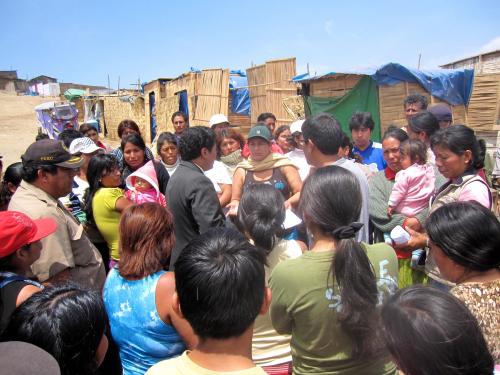Poverty, Statecraft, and the Unruly Formalities of Family in Urban Peru
By Kristin Skrabut
University of Maryland, College Park, March 28th, 2018
Abstract: According to official numbers, over the last 15 years Peru has experienced some of the most dramatic and sustained poverty declines in Latin America. Yet many Peruvians on the front lines of the nation’s “war on poverty” are skeptical of this success. They argue that help fails to reach the “truly needy” and that claims to the contrary are statistical makeup designed to obscure Peru’s corrupt and impoverished reality. Drawing on 24 months of multi-sited ethnographic research in policy design organizations in Lima and two officially designated “extreme poverty zones” in urban Peru, this talk begins to unravel the source of this skepticism. In doing so, it demonstrates how government efforts to fight poverty by formalizing property, identity, and family perpetuate unsustainable patterns of urban growth and deepen discrimination against single mothers. The talk concludes by introducing new research on how the Peruvian state’s pursuit of a new “digital modernity” might exaggerate or alter these trends.
Bio: Kristin Skrabut is a sociocultural anthropologist and lecturer of Social Studies at Harvard University. She received a Ph.D. in Anthropology from Brown University in 2014, where she specialized in political and legal anthropology, Latin American studies, urban anthropology, and interdisciplinary population studies. Dr. Skrabut’s first book project, Extreme Lives: The Politics of Poverty and Intimacy in Urban Peru, examines how international efforts to fight poverty shape livelihood strategies, intimate identities, and unruly patterns of urban development. Her second book project, Biometrics, Digital Modernity, and the Margins of the State investigates how the rise of e-governance and biometric surveillance technologies in Peru are remaking the ways Peruvians imagine, engage, and experience the state. At Harvard, Dr. Skrabut teaches courses on poverty and development in Latin American, comparative global urbanism, and medical anthropology.



